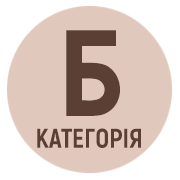ЧЕСЬКІ МУЗИКАНТИ БІЛЯ ВИТОКІВ ПЕРЕМИШЛЬСЬКОЇ КОМПОЗИТОРСЬКОЇ ШКОЛИ
Ключові слова:
галицька музична творчість, перемишльська композиторська школа, літургійний спів.Анотація
Висвітлюється постать чеського музиканта Алоїза Нанке, чия диригентська та композиторська діяльність наприкінці 20 – початку 30-х років ХІХ ст. була пов’язана з Перемишлем. Музичний аналіз літургійних творів Нанке дає підставу вважати його одним із творців перемишльської композиторської школи. Творчість Нанке мала знач- ний вплив на подальший розвиток галицької музики у ХІХ ст.
Посилання
Беднаржова Т. Федір Стешко український вчений-педагог, музиколог-теоретик. Тернопіль – Прага, 2000. – 254 с.
Вербицький М. О пінії музикальном // Українська музика наук. – Львів, 2015, число 1–2. – С. 23–27.
Ефимова Ю. Гармония Бортнянского на примере 35 концертов для хора. [Электроннный ресурс]. – Режим доступу до джерела: http://rmusician.ru/archives/topics/musica-theorica/ musica-theorica-10.htm
Кириллина Л. Классический стиль в музыке XVIII – начала ХІХ века. Часть ІІ: Музыкальный язык и принципы музыкальной композиции. – Москва: Композитор, 2007. – 224 с.
Кириллина Л. Классический стиль в музыке XVIII – начала ХІХ века. Часть ІІІ: Поэтика и стилистика. – Москва: Композитор, 2007. – 376 с.
Кудрик Б. Огляд історії української церковної музики. – Львів: Інститут українознавства ім. І. Крип'якевича НАНУ, 1995. – 128 с.
Лисько З. Піонери музичного мистецтва в Галичині. – Львів; Нью-Йорк, 1994. – 143 с.
Людкевич С. З приводу 100-х роковин смерти Д. Бортнянського // C. Людкевич. Дослідження, статті, рецензії, виступи. – Т. 1. / Упорядк., редакція, вступна стаття і примітки З. Штундер. – Львів: Дивосвіт, 1999. – 495 с.
Пилипович В. Єпископ Іван Снігурський в літературі перемиського бідермаєру // В. Пилипович. Культурна територія : Зб. статей – Перемишль, 2011. – С. 125–157.
Рыцарева М. Композитор Д. Бортнянский. – Москва: Музыка, 1979. – 254 с.
Роллан Р. Начало «классического стиля» в музыке XVIII века. // Р. Роллан. Собрание сочинений. – Т. XVII. – Ленинград, 1935. – 432 с.
Скребков С. Бортнянский – мастер русского хорового концерта // С. Скребков. Избранные статьи. – Москва: Музыка, 1980. – 216 с.
Юдкин-Рипун И. Риторическое наследие в эпоху сентиментализма: к дискуссии о «Подлинном Бортнянском» // Бортнянский и его время : К 250-летию со дня рождения: Материалы международной научной конференции [=Научные труды МГК, сб. 43]. – Москва: Моск. гос. консерватория им. П. И. Чайковского, 2003. – С. 67–76.
David M. Guion. A History of the Trombone. The scarecrow press. Lanham, Toronto, Plymouth, UK, 2010. – 251.
Petr Ch. Kalina. Praẑske pứsobeni ukrajinskếho muzikologa Fedora Steṧka // Musicologica Brunensia. – Brno, 2012. – V. 47/2. – S. 49–64.
Věra Lejsková. Moravské hudební rody. Zajímavé osudy zapomenutých. – Brno: Vydavatel: Šimon Ryšavý, 2014. – 105 s.







